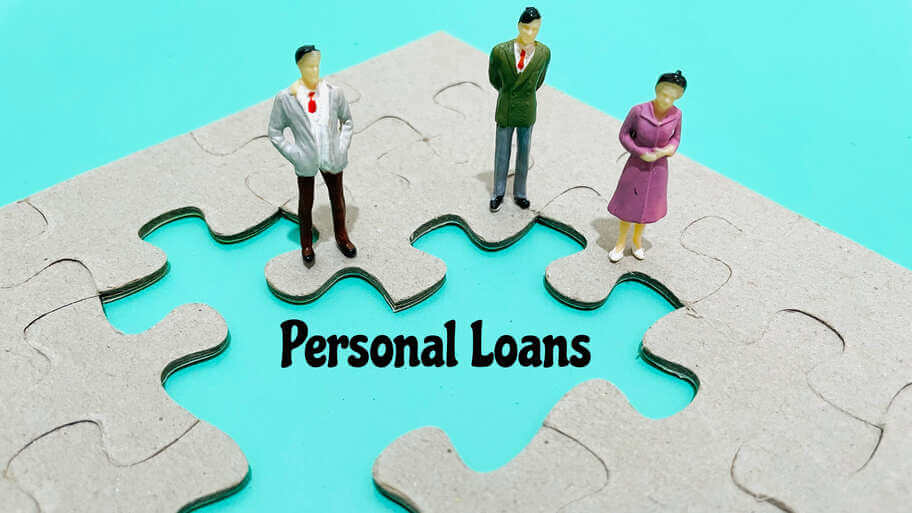A personal loan can be a useful financial solution to many needs, including debt consolidation, emergency expenses, and home relocations or renovations. The ideal personal loans are unsecured loans without upfront fees, which don’t require collateral like your home or car. However, personal loans include an origination fee that determines how much money you can borrow.
Read our guide below to learn about personal loan origination fees.
Origination Fee Defined
An origination fee is an amount that a lender charges for processing your loan. It is also called an administrative or underwriting fee. Origination fees are due upfront and deducted from your loan amount.
Different types of loans attract different origination fees depending on the borrower’s credit score, prevailing interest rates, and government regulations in the lending industry. Mortgages, auto loans, student loans, and syndicated loans all include their own origination fees.
What Is a Personal Loan Origination Fee?
A personal loan origination fee is a percentage of your loan amount charged by a loan lender to process your loan. Depending on your lender and the purpose of the loan, your lender can negotiate down the origination fees or eliminate it altogether, but this often means paying a higher interest rate for your loan.
How Much Do Personal Loan Origination Fees Cost?
For personal loans, the origination fees are between 1% and 8% of your loan amount. Mortgages usually have 0.5% to 1% origination fees. Auto loans attract 1% to 2% origination fees.
Syndicated loans, usually for loans of over $1 million, have origination fees calculated by the arranging bank. The arrangement fee for syndicated loans includes upfront fees, facility fees, letters of credit fees, and commitment fees.
The origination fee also depends on the details of the loan and of your financial standing. The actual percentage calculations factor in:
-
-
-
- The loan amount
- Your credit score
- Your income
- Your ideal repayment duration
- Other financial commitments such as a car loan, student loan, mortgage, or credit card debt
- The availability of a co-signer
-
-
These qualities determine how much risk you carry with your personal loan. Since no collateral is necessary for personal loans, high-risk borrowers pay a higher origination fee than low-risk borrowers to protect the lender from defaulters.
For example, for the same loan amount, a borrower with a credit score of 800 will pay 1% origination fees, while a borrower with a 650 credit score will incur 5%.
Let’s say that you need a $20,000 personal loan from a lender charging a 5% origination fee. 5% of $20,000 is $1,000, so you should request a loan of $21,000.
If not, you will receive your loan amount with the origination fees deducted upfront, meaning $19,000. Keep in mind that there are interest rates and other charges that come with personal loans.
Should You Pay An Origination Fee?
Many lenders will pay an origination fee because financial institutions look to earn from their lending services. Banks, credit unions, and other direct lenders usually have no origination fees, but online lenders likely will.
Even though origination fees may be prohibitive to borrowers, this should not be the only factor to consider when taking out a personal loan.
Other Personal Loan Factors to Consider
Your personal loan is also influenced by:
1. Look-Alike Fees
A personal loan lender may not charge an origination fee, but they may have something similar to an administrative fee or processing fee. These amounts should be transparent to borrowers according to the Truth in Lending Act (TILA).
2. Fixed or Variable Interest Rates
A personal loan may have a fixed interest rate, meaning that your monthly payments remain constant during the repayment period. It can also have a variable interest rate, increasing or decreasing your monthly payments according to the prevailing market rates. If you take out a $20,000 personal loan at a 6% fixed annual interest rate, this comes to $1,200 in interest, which is $100 per month.
3. Loan Caps
Some lenders may have a maximum and minimum loan amount that can make it challenging to borrow what you need after your factor in the origination fees, application fees, late fees, and other charges.
4. The Flexibility of Repayment Schedules
Personal loan repayment terms vary with lenders, loan amounts, and risk. A borrower with a good credit score can borrow a higher loan amount over a more extended repayment period to keep monthly payments lower. Shorter repayment schedules typically attract higher monthly payments.
5. Annual Percentage Rates (APR)
In addition to interest rates and monthly payments, APR will affect the cost of your loan. The APR is the percentage of your loan amount that goes to fees like insurance, discounts, broker fees, and rebates.
For example, a $20,000 loan may have a 12% APR, which comes to $2,400 on top of your monthly payments. To include a 5% origination fee of $1,000, you should take out a $23,400 loan ($20,000 + $2,400 APR + $1,000 upfront origination fee).
Are There Personal Loans with No Origination Fees?
Some lenders offer payday loans with no upfront fees or guarantors, which sounds like the perfect way to save on associated charges for your loan. But the most important thing to consider is the proposed APR for your loan. Before you choose a loan, ask your lender for a prequalification. The prequalification process does not affect your credit score, so you can do it with multiple lenders at a time.
Some lenders offer no origination fees but include other specific terms and conditions for borrowers. For example, a lender may offer no origination fees but limit loan amounts or refuse co-applicants that would boost your credit.
Some lenders only allow no charges for existing customers or debt consolidation loans for high-interest credit card debts. Others give no origination fees but no prequalification option, which means they require an immediate commitment from the borrower.
Final Thought
Personal loan origination fees are in place to allow lenders to provide their services to borrowers. However, on top of other costs like interest rates and APR, origination fees can seem like a burden.
Consider all factors before you choose a personal loan lender to fit your budget. No matter your needs for a personal loan, take your time and compare lenders to find the best option for you.
Featured Image: Twenty20








